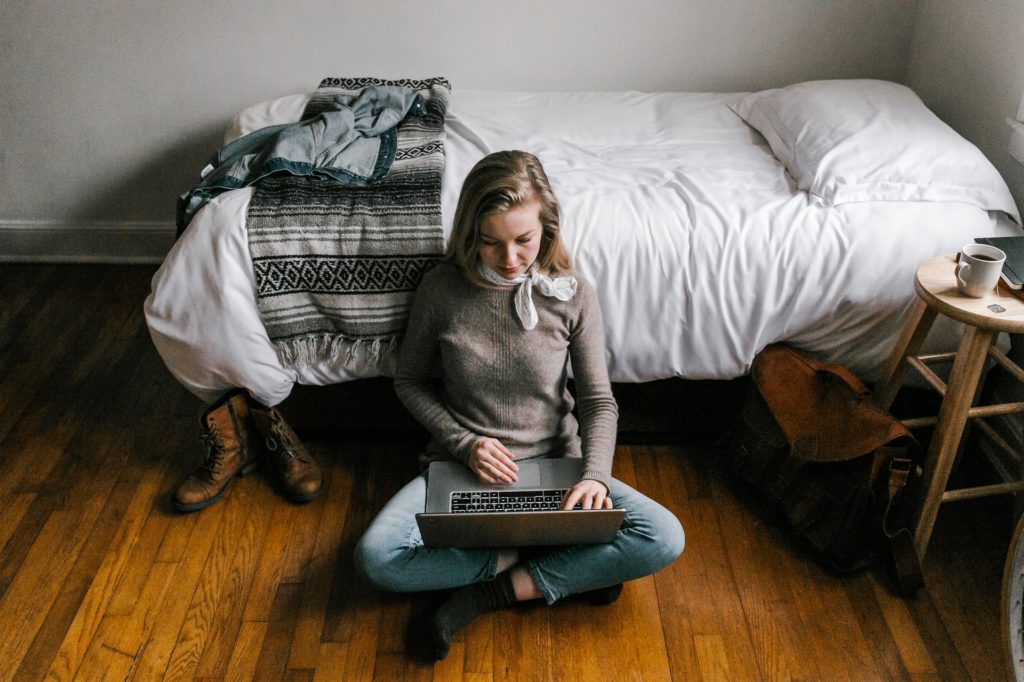Netflix has an autoplay feature that is both helpful and deeply annoying if you just want the TV on in the background and aren’t looking for a trailer of whatever you left your remote pointing at.
I had just turned on Netflix when it recommended a series about Work to which I thought hmmm. I know this old trope. We spend 650,000 bajillion hours of our lives engaged in these activities, “They should matter,” “We should think about them,” blah blah blah. I wasn’t interested in the tropes without a realistic foundation that acknowledges many people don’t have a choice.
Then I heard it was being narrated by Obama, so I was like fine I’ll add it to the queue.
I haven’t watched it yet, but I do spend a significant amount of my time thinking about how we define work and play. Because most work I do is unpaid, invisible, and unacknowledged .
Economists have published a few mia culpa’s on this point – American Capitalism is founded on the assumption that women are providing free domestic labor. And when you quantify that piece into the mix, you get a very different picture of how our “working” world works.
My work is caregiving. When I think about my “job” I think about parenthood. This is a highly controversial stance as I’m supposed to see “ motherhood” as an identity – something that causes my self-actualization and that I do for love and for me and for the kids! Whereas, “actual work“ is labor I am compensated for in cash and equity, not kisses.
The labor I am compensated for is 16000x easier than motherhood and way more fun. Doing laundry and being yelled at for making the “wrong” (same exact) dinner you made yesterday is tedious and painful. The social shame element of this proves my point. That my stating a fact about how I feel is controversial at all tells you something about what we believe (women should love motherhood) and how it is in contradiction with the facts (American capitalism is built on exploiting and subjugating women + subsuming their identities in order to create free labor).
If you want the data on this contact my friend Sarah who talks to Fortune 500 corporations about this at length. She armed me with so much data that I was able to persuade a voting member of a major development firm to vote in favor of paid family leave, a position he formally saw as “extorting companies” – which he now understands is extorting families, mostly women.
[Remember: the factor that determines whether your parenting faculties turn on is time spent with the child. You’re not born “a natural parent,” you develop into one. By being with your kid.]
I’ve heard the adage, “It’s not called work because it’s fun,” but I disagree. I find that things that involve the most work are the most fulfilling and then that becomes fun, for me at least. They become the things I’m most proud of. Like how hard I worked on a piece that really hit home with my readers. Or how much time I invested in somatic work so I could help my daughter regulate her nervous system. Or how many hours I put into that presentation, whether I succeeded or not – The Practice is what I find fun. And it’s always hard.
Showing up, learning, trying something that might not work, doing it again – that, to me, is fun.
I recognize I am in the minority here as I’ve been informed by friends and family that what is fun must be frivolous and what is work must be difficult, painful, and provide income. I disagree. Maybe this is only my position, but I have rarely been paid for my work. And I don’t personally find frivolity fun; I find it frivolous.
Judge me if you like, but I have never had fun on a beach. I am a ginger prone to heat stroke. Being at the beach is work for me. I’m constantly monitoring how much sunscreen I have on and still get burned, I get dehydrated in 20 seconds, the wind makes it impossible to read, and I always smell because it’s so GD hot, and then sand sticks to me in orifices I didn’t even know sand could get into.
I am told others have different experiences at the beach and it’s been pointed out that the problem is my attitude or character.
Maybe. It is also possible, if you will, I am allowed to define fun differently from you.
You are allowed to define fun differently from me.
Doing this – writing to you, right now, exchanging ideas, hearing your thoughts, takeaways, and grievances after I send this out – that is fun.
That certain things are “allowed” to be fun, while others are designated “work” seems arcane. I want to challenge that these need be mutually exclusive categories.
Playing with my child is work. I love her, I want to spend time with her. But the 15th game of chasing you around the couch is not fun. Getting my child to wash her hair and eat what is on her plate is work. Negotiating with a contractor is play. Writing is play. Setting up autoresponder sequences is play. Play that I take very, very seriously.
For a new way to approach work, based on dignity and significance, see my friend’s remarkable new book The Song of Significance . I had the privilege of being an early reader and it was one of those books that reminds you to keep going when you feel marred in an old system that feels impervious to change.
I found it a hopeful manifesto of not only what is possible, but what is happening in the world of work. If you run a team and want to bring them with you into the future of work, you need this book: Preorder The Song of Significance.
We are confused about work and business and what they are for. We know what they were originally built for (though we lie to ourselves about what that is) and we have yet to update our schema to fit a world where we cannot, should not, and do not exploit workers – and AI is about to change the game in a way we haven’t seen since the printing press.
The Song of Significance argues getting someone to show up because they care is going to be your competitive advantage in the future.
I’ll take that bet. Even if I lose, that’s the world I want to live in. One where the line between work and play is indistinguishable. Where we honor people, value dignity, and trust each other. Where we’re not expendable or exploitable, but significant.
I never wanted a life where I need to go to a beach to “escape” the world I live in. I want a life where I live in the world I live in.
I believe it’s possible.
But that part isn’t up to me. It’s up to you. And the values we reinforce in our day-to-day lives. Will we continue to talk about work as a necessary evil that exploits workers for increasing shareholder value – or is there another way?
(answer – yes )
Invisible, overworked, bitter, exhausted, and unappreciated seems a ridiculous and inexcusable way to go through life given the tools and opportunities (and better data) we have today.
I challenge you to build the future of work. My co-founder, Kristin, and I do it in small seemingly insignificant ways that I believe can change the world. We built an organization off of mutual respect, paying people smarter than us and staying out of their way, a willingness to be wrong, trust, and a desire to create a positive outcome for the end user – without destroying our lives in the process.
It means we move slower. It means we’re less sexy. But it’s sustainable. And we get to live aligned with our integrity. We’re clear on our end goals, values, and priorities. We speak candidly with one and other and lean into the tension of saying “no.” We are working hard, keeping promises we make to each other, and ensuring we don’t let the business get so important we corrode our souls and destroy our friendships and families in real life.
[Sidebar: During a distressing media battle that had me in tears, Kristin told me that if she caught me working she would fire me. And trolled me all over Discourse every time she saw me post. THAT is support. THAT is significant. That is what it means to do work you care about with people who care about you.]
So far, it’s working. We’ll see.
Check back next week and I’ll let you know if we’re still standing 😉
And pre-order The Song of Significance . I hear the author is quite good.
M




